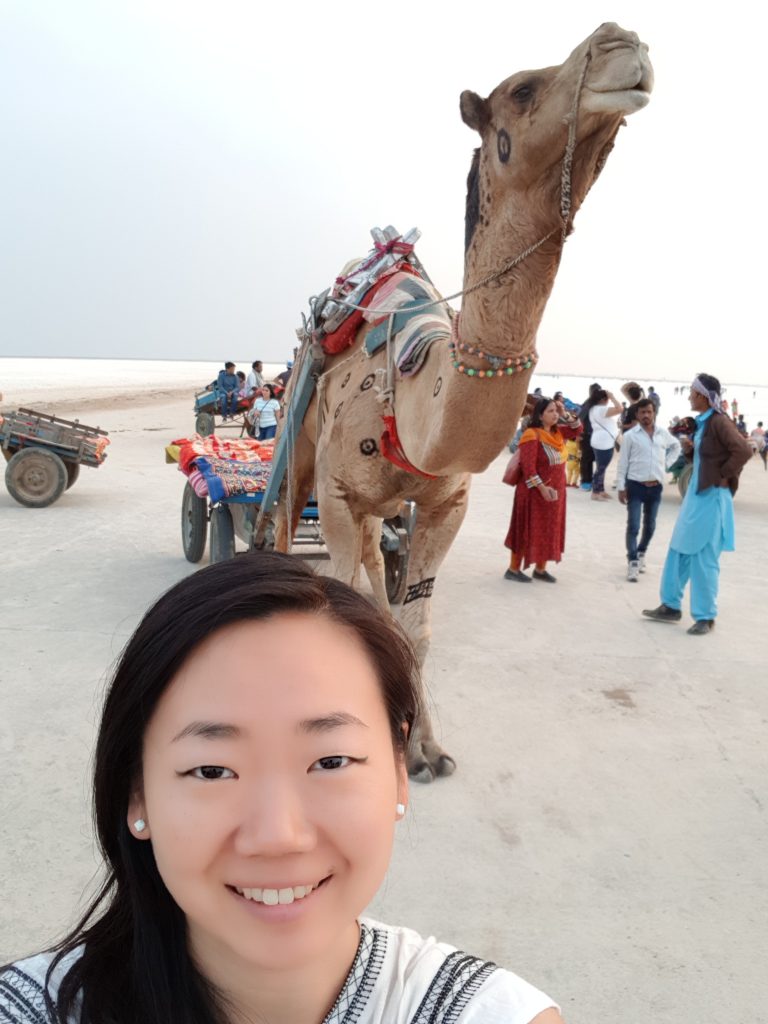South Asian Peacebuilding Program in Gujarat
The trip was not easy. Many aspects of it were challenging. We were busy all the time, we had to adjust to a different culture and to completely new experiences. Sometimes we had to speak about difficult topics, sometimes we were shocked or saddened. However, the trip was also powerful and enlightening. We had the opportunity to talk to people who survived unimaginable events, who fight for justice and peace, and who challenged the corruption of the system in which they live. We also walked inside ancient temples, did our best to make thread out of cotton, and saw a desert so white that it blended with the clouds on the horizon.
I was very close to not submitting my application. And even after I did, I kept wondering if I was making the right choice. In order to go I needed money and time, two resources that are always scarce. Going to the trip meant spending only two weeks at home, and it also meant not looking for a summer internship until after I came back. After much deliberation, what finally convinced me to go was thinking that in 15 months, I’ll be working for some company (I hope) and my life and responsibilities will have changed. I’ll travel a lot as a tourist (again, I hope), but I don’t know if I’ll ever again get a chance to do research and analyze a conflict by talking directly to the people who are living, challenging, and shaping it. As a student of localization and as someone interested in conflict and identity, it was priceless to learn all of these different (and often contradictory) worldviews and how they fit together inside one big community. Anyone, regardless of their field of study, would benefit from witnessing such an interaction.

“The Great Rann of Kutch.”



You must be logged in to post a comment.